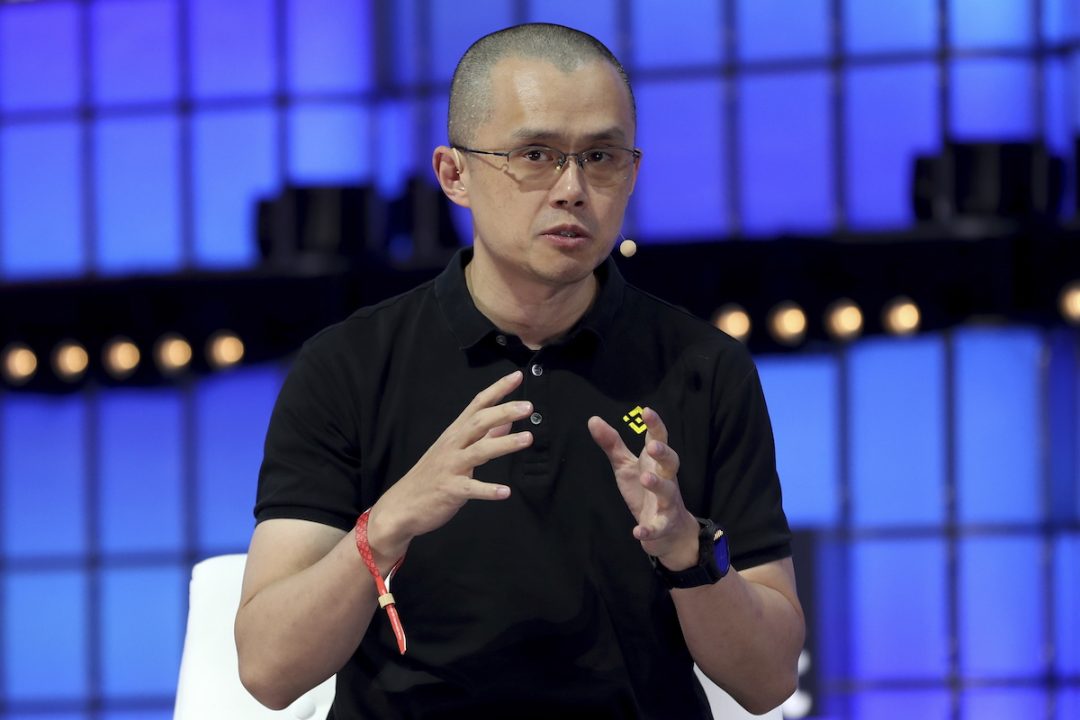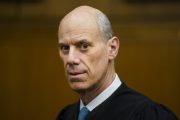
President Donald Trump pardoned Changpeng Zhao, co-founder of Binance, the world’s largest cryptocurrency exchange, on Wednesday. Binance is a global trading platform that handles billions of dollars in crypto transactions each day. In 2023, Zhao, also known as CZ, pleaded guilty to failing to maintain an effective anti-money-laundering program at Binance, a violation of the Bank Secrecy Act. He admitted that the company allowed U.S. customers to trade with sanctioned jurisdictions and ignored warning signs of criminal activity on the platform. Last year, he served a four-month prison sentence.
The pardon immediately drew criticism for Zhao’s known business links to World Liberty Financial, Inc. (WLFI). That is the president’s own crypto venture, co-founded with three of his sons, real estate developers Steve and Zach Witkoff, and several other investors.
Why Pardon Zhao?
At the White House, Trump was asked about the pardon:
Today you pardoned the founder of Binance. Can you explain why you chose to pardon him, and did it have anything to do with your family’s [crypto] business?
The president paused to confirm whom the journalist meant. He then launched into what sounded less like a legal explanation and more like a reflex — strongly evoking the “autopen” scandal of his predecessor:
I believe we’re talking about the same person, because I pardon a lot of people. I don’t know. He was recommended by a lot of people. A lot of people say — Are you talking about the crypto person? A lot of people say that he wasn’t guilty of anything.
He then continued,
He was somebody — I don’t know — I don’t believe I’ve ever met him. But I’ve been told by a lot — a lot of support — he had a lot of support, and they said that what he did was not even a crime, that he was prosecuted by the Biden administration. And so I gave him a pardon on request by a lot of good people.
Press-secretary Karoline Leavitt defended the move at a White House briefing. She said the president had exercised his constitutional authority and that the pardon followed “thorough” review. She added that the case was “overly prosecuted” by the Joe Biden administration.
Leavitt also issued a separate statement, reported by Politico. She argued that the Biden administration “pursued Mr. Zhao despite no allegations of fraud or identifiable victims.” She added that prosecutors had sought “a sentence so far outside the guidelines that even the judge called it unprecedented.” Leavitt said the case had “damaged America’s reputation as a global tech leader” and declared, “The Biden administration’s war on crypto is over.”
Zhao’s Crimes
The Justice Department’s case against Changpeng Zhao and Binance was anything but subtle. In one of the largest corporate resolutions in U.S. history, both Zhao and his company pleaded guilty to violating anti-money-laundering and sanctions laws. The company admitted to operating without registration, ignoring basic “know-your-customer” requirements, and allowing billions in transactions that violated U.S. sanctions.
According to the Justice and Treasury Departments, Binance failed to implement an effective anti-money-laundering program, allowed U.S. customers to trade with users in sanctioned jurisdictions, and ignored red flags that the platform was being used by criminals and sanctioned entities. Treasury officials said Binance “failed to prevent and report suspicious transactions with terrorists — including Hamas’ Al-Qassam Brigades, Palestinian Islamic Jihad, Al-Qaeda, and ISIS.”
The Treasury’s investigation also detailed Binance’s extensive ties to other illicit activity. The exchange failed to report to the Financial Crimes Enforcement Network (FinCEN) transactions linked to ransomware operations, despite handling millions in proceeds from attacks involving at least 24 ransomware strains. It also failed to report payments connected to child sexual abuse material sites. Likewise, Binance processed virtual asset transfers linked to darknet markets, large-scale hacks, and scams involving narcotics, counterfeit goods, and fraud — without filing a single suspicious activity report.
Zhao admitted he knew Binance served U.S. customers without proper oversight and prioritized rapid growth over compliance. His internal motto, prosecutors noted, was, “Better to ask for forgiveness than permission.”
In April 2024, Zhao was sentenced to four months in prison, and Binance agreed to pay a $4.3 billion penalty. He was released from U.S. custody after serving his term.
A Pardon With Benefits?
Although Zhao stepped down as Binance’s CEO following his guilty plea, he remained its largest shareholder. As such, he retained significant influence and considerable clout over the company’s global operations. The exchange emerged as a prominent supporter of World Liberty Financial, selecting its USD1, launched this March, as a token for a major transaction. According to Binance materials,
At the Token2049 conference in Dubai in April 2025, WLFI co-founder Zach Witkoff announced that USD1 was selected to facilitate a $2 billion investment deal between Abu Dhabi’s MGX and Binance. This exclusivity deal underscored USD1’s institutional appeal and contributed to its market-cap surge.
The deal gave Trump’s venture a major lift, boosting its circulation and credibility.
For readers less familiar with crypto, a token works much like a digital chip in a casino. You buy it with real money, use it for transactions, and the company behind it holds those dollars in reserve. WLFI earns money from the billions backing the token. The reserves generate interest, and the firm collects fees when new tokens are issued or redeemed. In short, every new USD1 in circulation means more real dollars earning money for the company.
The Trump family, who control the firm, reportedly made tens of millions of dollars following the Binance deal. In his June 14 financial disclosure, Trump reported $57.4 million in income from WLFI. Forbes estimated that “Trump’s net worth has jumped about $3 billion over the past year,” reaching about $5.2 billion. “The surge has been driven less by real estate or his golf clubs than by the soaring value of his crypto-linked ventures,” said the outlet.
Thanking Trump
Zhao took to social media to thank Trump, writing that he was “deeply grateful for today’s pardon.” He also pledged to help “make America the Capital of Crypto.” The message neatly echoed Trump’s commitment to make the United States the global hub for digital assets.
According to multiple outlets, Zhao retained prominent lobbyist Ches McDowell and attorney Teresa Goody Guillén to negotiate a presidential forgiveness of his crimes. Teresa Goody Guillén also represents WLFI — a peculiar overlap given the Trump family’s direct stake in the firm. During that lobbying campaign, representatives of the Trump family reportedly held discussions about taking a financial stake in Binance’s U.S. operations.
The market’s reaction to the Trump’s move was swift. Financial Content reported,
The immediate aftermath of CZ’s pardon was a spectacle of green candles across crypto charts, signaling a robust “relief rally.” Binance Coin (BNB) was the undisputed star, surging over 5% in the hours following the news.
The outlet noted that proponents celebrated the move as a sign of easing regulatory pressure on digital assets. Critics, meanwhile, questioned what it signaled for the fairness of the justice system — and whether political influence could once again override legal accountability.
Related:
Trump’s Crypto Orbit Expands: China-tied Firm Joins Foreign Money Surge





